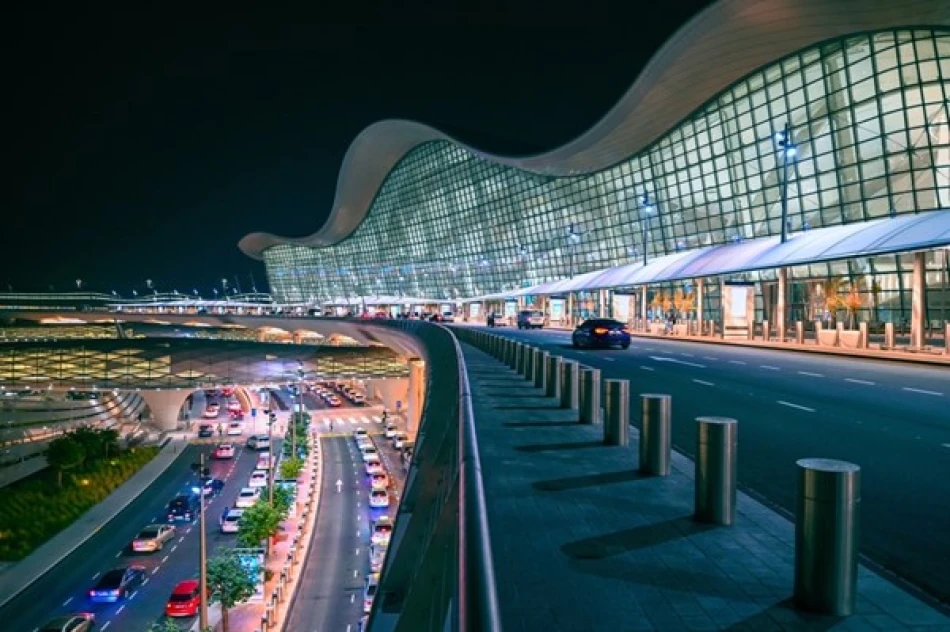
UAE Aviation Soars to New Heights: Unparalleled Security and Safety Standards Achieved
UAE Aviation Safety Reaches Global Peak with 98.86% ICAO Rating
The United Arab Emirates has achieved a remarkable 98.86% score in the International Civil Aviation Organization's (ICAO) Universal Safety Oversight Audit Programme, positioning Emirati aviation among the world's safest. This exceptional rating reflects the UAE's strategic investment in AI-powered oversight systems and proactive safety protocols, reinforcing its status as a global aviation hub while setting new industry standards for safety management.
Technology-Driven Safety Revolution
The UAE's aviation safety success stems from its pioneering adoption of artificial intelligence in regulatory oversight. The country became the first globally to implement an AI-supported, risk-based intelligent supervision system that fundamentally transforms how aviation safety is monitored and managed.
This cutting-edge system features real-time risk monitoring dashboards, intelligent audit prioritization tools, and automated checklists. The technology enables operators to conduct self-assessments through electronic platforms, creating a more efficient and comprehensive safety net without requiring additional human resources.
Smart Oversight in Practice
During 2024, the UAE's safety sector conducted over 900 oversight operations covering aircraft airworthiness inspections, foreign operator reviews, operational assessments, license examinations, and infrastructure evaluations. This extensive monitoring program demonstrates how technology can amplify regulatory effectiveness while maintaining rigorous safety standards.
Strategic Framework Aligned with Global Standards
The UAE's aviation safety strategy operates through the "National Aviation Safety Plan 2023-2026," which aligns with ICAO's Global Aviation Safety Plan and implements the State Safety Programme (SSP). This framework focuses on reducing operational risks across all flight phases while strengthening regulatory oversight and embedding safety culture as an institutional principle.
The approach reflects lessons learned from aviation incidents worldwide, where regulatory gaps and cultural issues have contributed to safety failures. By emphasizing both technological solutions and cultural transformation, the UAE addresses systemic vulnerabilities that have plagued other aviation markets.
Proactive Health Security Measures
In response to global health challenges highlighted by the COVID-19 pandemic, the UAE launched the world's first national protocol for monitoring infectious diseases in aviation. This initiative includes early warning systems at terminals, real-time light alert systems, and field training programs for frontline workers.
This health-focused approach positions the UAE ahead of international trends, as aviation authorities worldwide grapple with integrating health security into traditional safety frameworks. The protocol demonstrates how aviation safety is evolving beyond mechanical and operational concerns to encompass broader public health considerations.
Market Implications and Competitive Advantage
The UAE's exceptional safety rating provides significant competitive advantages in the global aviation market. Airlines and airports with superior safety records typically enjoy lower insurance costs, increased passenger confidence, and preferential treatment from international partners.
For investors and aviation businesses, the UAE's safety leadership reinforces its position as a strategic hub for airline operations, aircraft maintenance, and aviation services. The country's technological innovations in safety oversight also create opportunities for exporting these systems and expertise to other markets seeking to modernize their regulatory frameworks.
Regional Leadership and Global Influence
The UAE's achievement sets a new benchmark for Middle Eastern aviation, particularly as the region experiences rapid growth in air traffic and airline expansion. Countries like Saudi Arabia and Qatar, which are investing heavily in aviation infrastructure, will likely study and potentially adopt similar AI-driven oversight approaches.
The success also strengthens the UAE's influence within ICAO and other international aviation bodies, positioning the country as a thought leader in safety innovation rather than merely a compliance follower.
Future-Proofing Aviation Safety
The voluntary reporting platform "VORSY" represents another innovative element in the UAE's safety ecosystem. By encouraging transparent reporting of potential safety issues that might escape mandatory reporting systems, the platform creates a more comprehensive safety intelligence network.
This approach acknowledges that modern aviation safety depends on cultural factors as much as technical systems. The emphasis on collective responsibility and transparency reflects best practices from high-reliability organizations across industries, from nuclear power to healthcare.
The UAE's 98.86% ICAO rating is not merely a regulatory achievement but a strategic asset that reinforces the country's aviation ambitions. As global air traffic continues recovering and expanding post-pandemic, the UAE's investment in advanced safety systems and proactive health protocols positions it to capture a larger share of international aviation business while setting new industry standards for safety excellence.
Most Viewed News

 Layla Al Mansoori
Layla Al Mansoori






